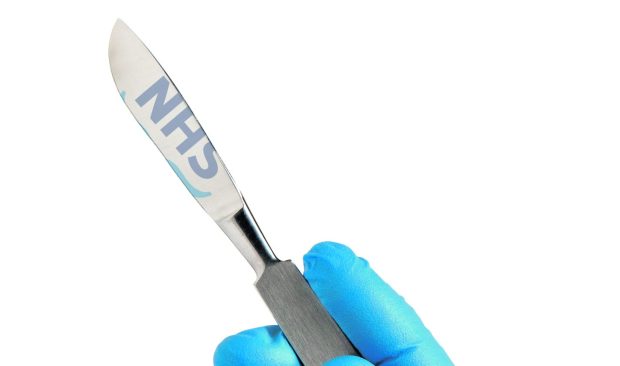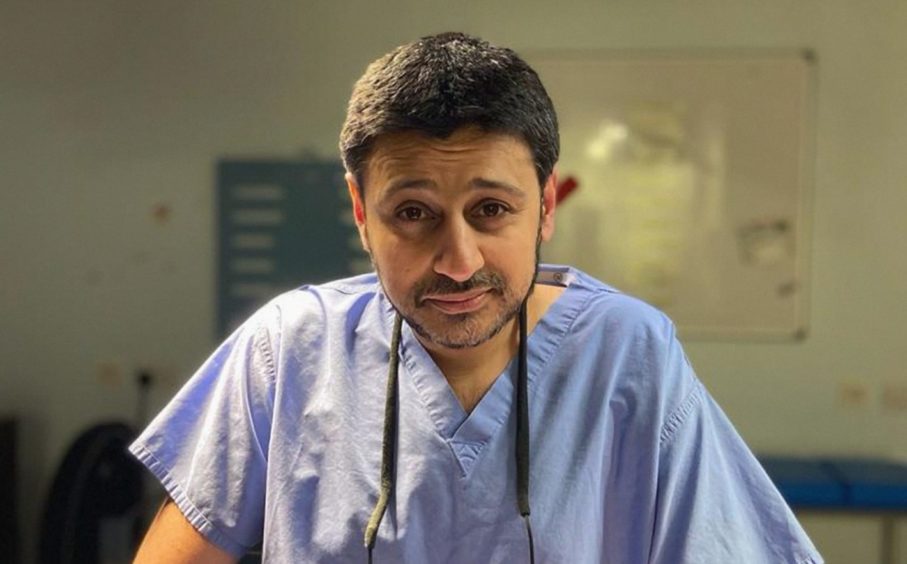
Leading doctors have expressed concerns over the Scottish and UK Governments using unregulated medics to replace NHS GPs and nurses.
They cite fears over physician associates (PAs), who qualify after two-year university courses then see patients, diagnose illnesses and act as doctors’ assistants.
The major worries centre around PAs’ lack of training and regulation. In contrast, doctors are regulated by the General Medical Council (GMC) and nurses by the Nursing and Midwifery Council (NMC).
More than 3,000 physician associates currently work in the UK with 142 “whole time equivalent” posts in Scotland.
The GMC expects that number to grow, with 36 universities now running PA courses, including Aberdeen University.
Leading doctors say that neither patients nor doctors have been properly consulted about what PAs can do, or the scope of their training.
Hundreds of doctors last week signed an open letter to the leadership of the Royal College of Physicians (RCP), urging them to take a stand against the introduction of physician associates.
Anaesthetists have forced an emergency meeting of their royal college this month to halt the increased use of anaesthesia associates, a similar role also due for expansion. The open letter to the RCP’s council, signed by 46 fellows of the college and 194 other doctors, includes concerns over patient safety and liability.
It also highlights that newly qualified associates can earn more than newly qualified doctors.
The letter follows the death of a young woman whose blood clot in the lungs was missed after being dismissed as having a leg sprain by a PA working in a London GP practice.
The RCP letter says: “There have been several high-profile incidents in which serious illness was missed by [an associate] when undertaking a role that would normally be filled by a doctor. In some cases, avoidable deaths have resulted.”
Scottish surgeon Dr Zubir Ahmed, who works in a large teaching hospital, said he has serious concerns over the lack of regulatory oversight and the “creeping scope” of physician associates.
The NHS consultant and prospective Labour candidate for the Glasgow South West constituency, added that neither patients nor NHS professionals were adequately consulted by the Scottish or UK Governments before it recruited PAs to GP practices, hospitals and clinics.
“Hospital doctors are used to working with a large and diverse group of allied health professionals, including nurse practitioners, physiotherapists and others, who bring unique and valuable skill sets gained over many years of training,” he said.
“They work within a well-defined scope of practice within regulatory frameworks and patients are fully aware of who is treating them and what qualifications they have.
“Introducing physician associates to the NHS has been undertaken without respecting any of the safety-critical established precedents of regulation and definition of scope of area or expertise.
“On many occasions it has left patients under the impression that they are being treated by a doctor when they are not.”
He adds that carrying out complex surgery is a huge privilege for doctors and that consultants have almost two decades of training before being considered ready for independent practice.
“The idea that you can compartmentalise the practice of a broad-based surgeon to one that is procedure specific and filter training down to a couple of years without a medical degree is not one that patients would accept. I cannot ethically support it.
“It is a shift in healthcare, and it is being done without public consent. I am sure expanding PA roles is very appetising to policymakers in plugging vacancies.
“I cannot recall the Scottish or UK Governments ever asking for patients’ or NHS professionals’ opinions on what impact this might have on standards of care.”
Emily Chesterton, 30, suffered a cardiac arrest on the way to the hospital after her blood clot went undiagnosed. The coroner at the inquest into her death highlighted the poor quality of care given by the PAs at her London GP surgery.
A GP based in the Scottish Highlands said: “This is our biggest fear about employing a PA. We worry that they are not qualified or experienced sufficiently to make a good diagnosis.
“Good clinical skills only come with years of training and experience. Should a patient become ill after being misdiagnosed, the GP is responsible for them.
“I am also alarmed by the number of PAs promoting themselves as doctors on social media.”
Scottish GP surgeries are 2,000 GPs short, says the British Medical Association Scotland, with rural areas most cripplingly affected.
Last week, BMA Scotland chairman Dr Alan Robertson revealed he believed the Scottish NHS is short of around 1,000 senior consultants. And last month The Sunday Post revealed concerns after the number of consultants retiring rose by 50% in three years.
Those who get through the course to train as GPs or hospital and community doctors often hit a bottleneck. In one speciality, haematology, at least 200 junior doctors applied for 73 jobs to train as specialists in blood disorders and cancers recently.
An ‘unsustainable crisis’: Doctors fear for the future over soaring number of early retirements
Overseas jobs await the 120 plus unsuccessful candidates determined to become consultant blood specialists.
“It is appalling in the current climate of doctor shortage,” said one consultant haematologist. “We lose thousands of doctors to this bottleneck in training places across all specialities and when they emigrate, they don’t often return.”
The RCP said: “We recognise the growing concerns being raised by RCP fellows and members and we will be discussing these in a council meeting planned for later in October. We host the Faculty of PAs and believe there is a valuable role for physician associates within the multidisciplinary healthcare team, but they are no replacement for doctors and their employment in NHS trusts should definitely not be to the detriment of doctors in training or growth in doctor numbers.
“With the long-term workforce plan recommending the expansion of medical associate professionals (MAPs) there is an even more pressing need for regulation, something we have campaigned for over many years. It is becoming increasingly clear that the health and care workforce, patients and the public need more clarity on the MAP role and scope of practice. The FPA is publishing a series of supportive guidance to help address this issue, with the first document focused on titles and introductions.”
The Scottish Government said: “PAs are an important and valued part of the NHS Scotland workforce. As part of our efforts to ensure that workforce is fit for the future, the Scottish Government will continue to consider how these roles can be utilised to best effect, supervised and supported by senior medical professionals throughout their training and subsequent deployment. As part of this, we will continue to consider the sufficiency of current training opportunities for these roles.
“We are also working with the Department of Health and Social Care and a range of stakeholders to bring physician associates and anaesthesia associates into regulation by the GMC. This will for the first time introduce consistent standards for education and behaviour and UK-wide professional accountability to these roles.”

Enjoy the convenience of having The Sunday Post delivered as a digital ePaper straight to your smartphone, tablet or computer.
Subscribe for only £5.49 a month and enjoy all the benefits of the printed paper as a digital replica.
Subscribe